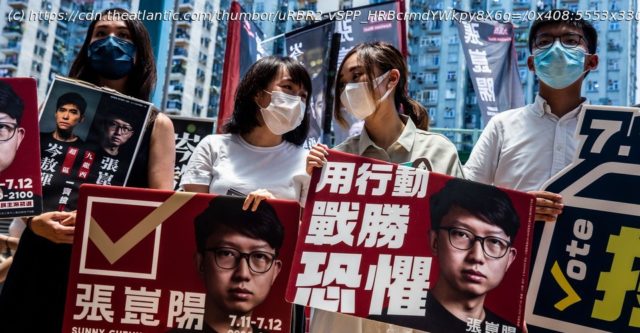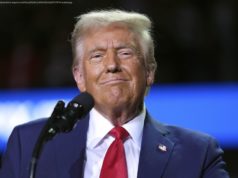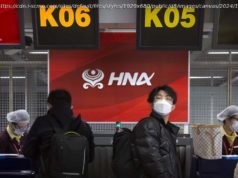In cracking down on dissent, Beijing has jailed many of Hong Kong’s loudest progressive voices.
The police report refers to it simply as “the Scheme.” It was, in law enforcement’s telling, a conspiracy aimed at overthrowing Hong Kong’s government. For seven months, an eclectic array of prodemocracy activists and political hopefuls held meetings, raised funds, and gave media interviews in preparation for an unofficial primary election. One of them, the police report states, went so far as to locate “appropriate venues for polling stations.” The winners of that contest would then run in the city’s legislative-council elections with the explicit goal of gaining a “controlling majority” of seats. Once they accomplished that, the new lawmakers would use their positions to vote against the sitting government’s agenda, including the budget, in an effort to carry out their own political goals, with a mandate from those who voted for them. It sounds a lot like a simple exercise in democracy. That’s because it was. The transgressions listed appear to be the type of banal shoe-leather politicking that goes into running a local campaign. That’s because they were. More than 600,000 people voted in Hong Kong’s primary over the course of an oppressively humid weekend in mid-July, far exceeding the organizers’ estimated turnout of 170,000. Shortly thereafter, the warnings came, as Beijing declared the process a “ provocation ” and “ revolution .” Officials in Hong Kong began disqualifying winning candidates from competing in the legislative-council elections, which had been scheduled for September but two weeks after the primary were postponed for a year, ostensibly because of the pandemic. In the months that followed, efforts to eliminate Hong Kong’s opposition and break the city’s democratic spirit continued without pause. On the last day of February, authorities charged 47 people with conspiracy to commit subversion for partaking in the unofficial primary for an election that never happened and in which many were barred from participating. Their alleged crime is a violation of the sweeping national-security law enacted by Beijing last year, and can be punished by life in prison. The next day, bail proceedings began, a grueling multiweek affair during which numerous defendants were admitted to the hospital for exhaustion. The process looked at times like a political show trial, calling into question the ability of the city’s common-law courts to retain their credibility. The proceedings started at the same time officials met on the mainland to discuss drastically retooling Hong Kong’s electoral system to make sure that only “ patriots ” rule the city. The plan was approved by the National People’s Congress without a single dissenting voice; details were not revealed before the rubber-stamp vote. The city’s leader said the public would not be consulted on the implementation of the changes. Taken together, the events of early March are the most significant yet in China’s efforts to reengineer the boisterous Hong Kong into a more palatable, and more subservient, city. Many Hong Kongers see these developments as “essentially eliminating political opposition in Hong Kong,” says Michael C. Davis, a law professor at O. P. Jindal Global University, in India, and the author of a book on the city’s rule of law. On trial in Hong Kong is not just the democracy movement, but a surprisingly wide swath of Hong Kong itself. Observers tend to describe the protesters as part of the city’s prodemocracy movement, but that flattens them and their ideology: Among the defendants are champions of Hong Kong’s progressive values, noted gay-rights activists, pioneering labor leaders, feminists, and medical workers, all swept up in a dragnet deployed to stifle democratic development and pluralistic politics. In one mass trial, authorities are “removing the voice of Hong Kong people,” Davis told me.






